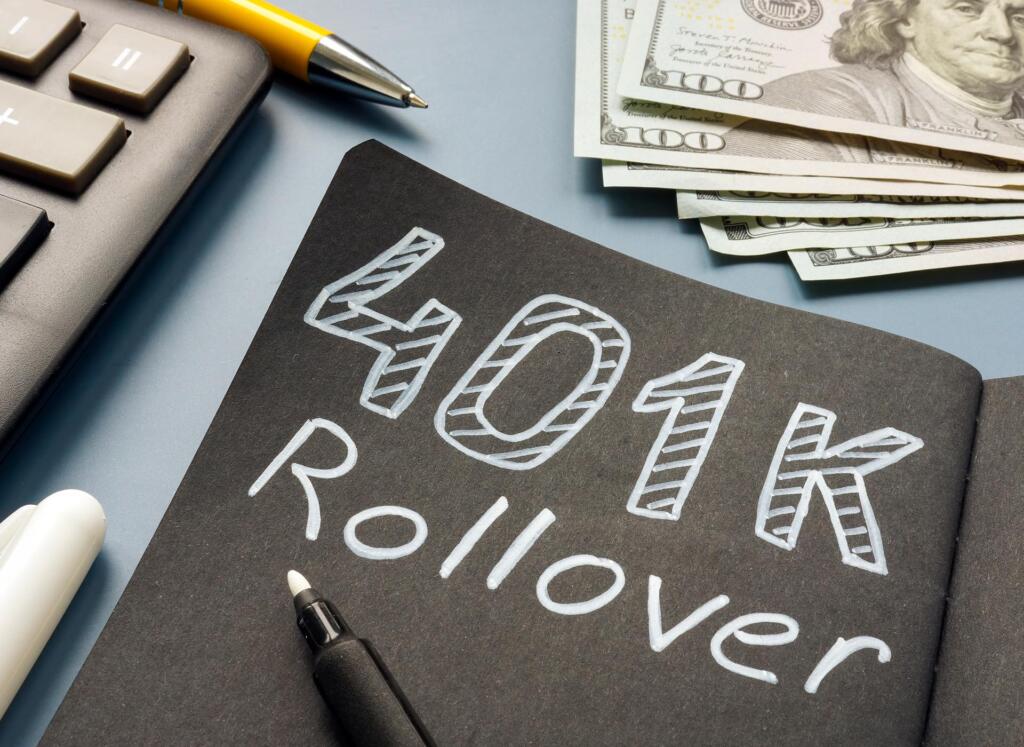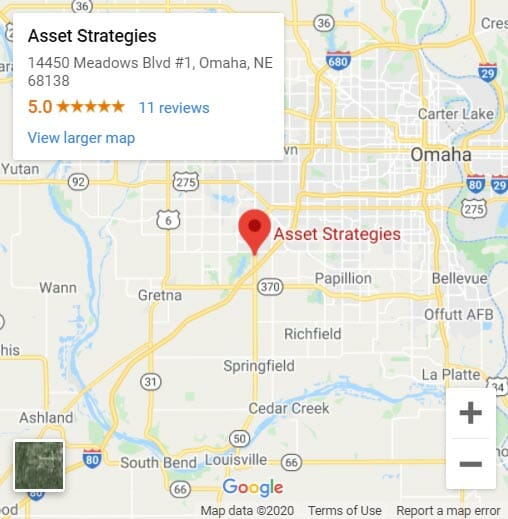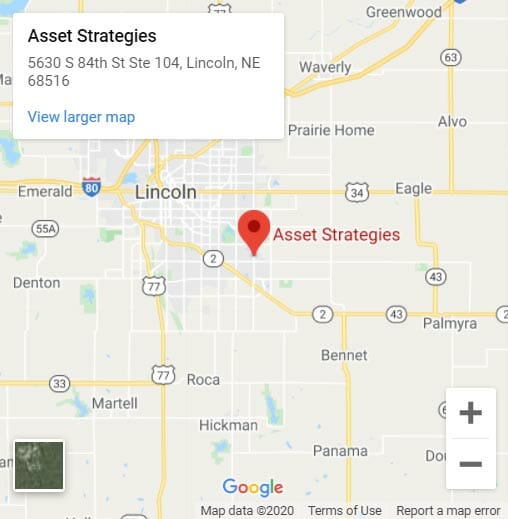- What do I do with my old 401(k)?
- I have recently changed jobs… what happens to my 401(k)?
- I am getting ready to retire… what do I do with my employer-sponsored plan?
- Am I able to consolidate my various old 401(k) plans into one account?
What options do I have with my 401(k) when I leave employment or retire?
These are just a few of the questions that we are asked most frequently here at Asset Strategies. They’re important questions because, oftentimes, your 401(k) plan houses the majority of your retirement savings. It reflects years of your hard work and diligent saving practices, and you want to ensure you’re maximizing that benefit.
There are a few options regarding your 401(k) when you leave an employer:
1) Most 401(k) plans have provisions that allow you to leave it where it is. With this option, you can no longer make contributions or receive any matching contributions from the employer. It simply sits *as is* and is invested in whatever funds you had previously selected.
2) You can cash it out. There are a couple of careful considerations to keep in mind when choosing this option as you may be subject to paying taxes and a 10% penalty on the funds.
3) You can roll it out of the 401(k) and into an IRA. This is called a 401(k) Rollover and is a seamless transition of funds out of the 401(k) plan and directly into an IRA. With this option, Asset Strategies is there to help you every step of the way.
Three reasons why should I consider rolling over my 401(k) into an IRA?
1) The greatest benefit to participating in any employer-sponsored plan is the matching contribution offered by the employer. This is “free money” that you don’t want to leave lying on the table. However, once you terminate employment or retire, this benefit is no longer available to you.
2) Oftentimes, the investment options offered within a 401(k) plan are few. The plan may feature a line-up of only a small handful of funds.
3) Generally speaking, the investment options that are offered within a 401(k) plan are mediocre, at best.
It is because of these three reasons that your dollars may be better served in a more diversified and customized portfolio of funds selected specifically with you in mind. Rolling them out of the plan and into an IRA also grants you more control over that asset.
What’s the best way to invest my old 401(k)?
The answer to this question truly does vary from person to person.
BIG PICTURE: We move those dollars you worked so hard to accumulate into a portfolio built specifically tailored to address your current situation, your future goals, your tax strategy, and your investment risk tolerance. We then actively manage those dollars to ensure they’re diversified and working as hard for you as possible.
401(k)’s at retirement
You’ve spent your entire working career saving month by month in your 401(k) and now it’s time to turn things around and start pulling those $’s out. How do you do it, and what does it mean to your tax situation when you do? Many people at retirement decide to do a 401(k) Rollover into an IRA. This might be a place that they put previous 401(k) rollovers or saved outside their employer’s plan. These 401(k) rollover accounts historically have been “Traditional” retirement investments, which means that the money went into the account “pre-tax” and is taxable when you pull those dollars out at retirement. These withdrawals are considered ordinary income and will be taxed at your marginal rate.
In recent years, some companies have started offering Roth 401(k) plans. These plans allow you to put contributions in after tax and then after age 59.5 you can take these contributions plus the growth out of the portfolio tax-free. Sometimes it’s a good idea to have both Traditional and Roth 401(k) rollover plans when you get to retirement age so you have different options tax-wise to draw from to maximize your income. As always, if you have questions, please send us a message through the website or call us at 402-933-4642 during regular business hours.
What’s the difference between a 401(k) and an IRA?
When it comes to saving for retirement, there are different options a person can consider. One of the first options a person looks at is their 401(k) at work. A 401(k) is a defined-contribution plan that allows an employee to contribute up to $19,500 (2021). If you are 50 or over you can contribute a catch-up provision amount of $6,500 additional dollars to max out at $26,000. On top of the employee contributing money to the account, oftentimes the employer will provide a specific percentage match as well. In the traditional 401(k), any dollars the employee puts in can be a tax deduction on their income tax statement for the year they contribute. These are considered pre-tax dollars. The money can then be invested in mutual funds that the 401(k) has to offer. Those dollars grow tax-deferred year after year and are then taxed as income when the owner pulls the dollars out for retirement at age 59.5 or later. If a person gets behind financially and needs dollars, most 401(k)s allow a person to take a loan on their account and pay it back through their paychecks.
Another option to save money for retirement is the traditional IRA. The IRA (Individual Retirement Account) differs from the 401(k) in several ways. A person, if eligible, is allowed to invest up to $6,000 a year (2021) from age 49 and younger. Age 50 and over is allowed to contribute an additional $1,000 a year. In most cases, a person has more options to pick from when investing in an IRA as opposed to the options a 401(k) gives you. While the IRA has more options, it doesn’t allow you to contribute as much. There are no employer matches in an IRA and you are not allowed to take a loan against your IRA. The money in the Traditional IRA grows tax-deferred like the 401(k) and can be used after the owner reaches 59.5 years old or has held the account for five years, whichever is longer. Any distribution is looked upon as income. If you take money out of the IRA before 59.5 years old, the money is taxed as income and you receive a 10% penalty on the amount taken as well.
Both investment options have several benefits. It comes down to the individual’s goals when deciding which one to use. When a person leaves a job, they have the option of taking the 401(k) and rolling it over to a Rollover IRA. This allows the owner to control the account and have the option to invest the money based on their age, risk tolerance, and investment objectives.
How do I roll over my 401(k)?
Once you have separated service from a previous employer, you have the option of moving your 401(k). If you choose to roll over your 401(k) into an Individual Retirement Account (IRA), you can have the funds sent directly to the IRA. This is called a direct transfer rollover. This process does not create a taxable event; therefore, you would have no taxes or penalties owed. There is no age restriction on doing a 401(k) rollover. When your 401(k) contains Roth 401(k) contributions and also pre-tax contributions, you will open a traditional IRA and a Roth IRA to ensure that your funds maintain their correct classification.
The 401(k) process can seem daunting. First, you would need to open an account(s) to roll over the 401(k) money. Second, every 401(k) plan has its own process for submitting a rollover request. One of our advisors will walk you through the process to help you determine your 401(k) plan’s process. Some plans allow for the rollover request to be submitted online or with a telephone call to the 401(k) plan sponsor. Other times the 401(k) plan requires some additional paperwork to be completed and submitted. No matter what the process requires, our team here at Asset Strategies will guide you step-by-step through the process.






